Organic gardeners who have committed must have a dependable and productive fertilizer. Organic chicken manure pellets are an excellent solution for this pest problem as they bring various benefits to the soil’s health and the growth of plants. This article will discuss why organic chicken manure pellets are recommended compared with other options. To offer enlightening information to gardeners about how best to optimize their gardening practices, these nutrients must be examined in detail and ways of applying them to different types of plants. Understanding these factors helps farmers make wise choices in their farming methods, ensuring that food production is sustainable and bountiful. Also, we shall review other fertilizers about organic chicken manure pellets, indicating that this natural product is an exemplar.
What Are the Components of Organic Chicken Manure Pellets?
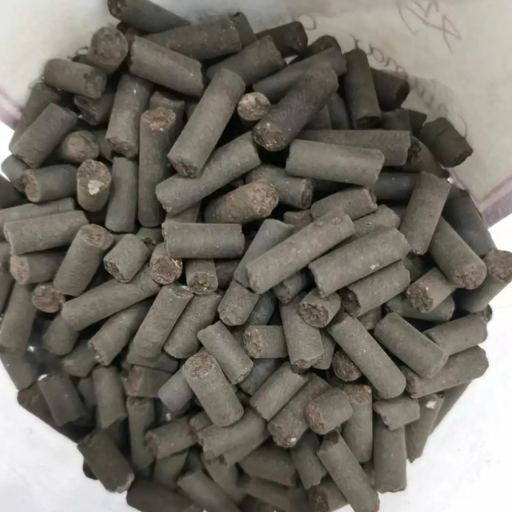
Organic chicken manure pellets are primarily composed of key macronutrients vital for plant growth, including nitrogen (N), phosphorus (P), and potassium (K), often referred to as N-P-K. These pellets also contain essential micronutrients such as calcium, magnesium, and sulfur, which are crucial in various plant physiological processes. Moreover, organic matter in the pellets improves soil structure, creating a good water-holding capacity for better microbial activity. Nutrient leaching risks to plants are minimized due to the slow-release nature of these nutrients.
Understanding Chicken Manure
Chicken manure has a high nutrient content that is invaluable in organic gardening. Essential macro-nutrients found in chicken manure include nitrogen (N) 1.8%, phosphorus (P) 1.5%, and potassium (K) 0.9%. These nutrients are vital for promoting healthy plant growth and development, making chicken manure highly effective. Sulfur (S) 0.5%, Magnesium (Mg) 0.3%, and Calcium(Ca)2.% are micro-nutrients contained in chicken dung that help boost production via increasing chlorophyll synthesis, cell wall strength, and protein formation.
In addition to its nutrient composition, chicken manure contains organic matter that significantly benefits soil structure. This includes improving the soil aeration properties and aiding in water retention within it to cater for root systems of plants’ needs through increased moisture content within the soil system; For example if you have clay soils then it helps drainage also in sandy soils, it will increase water holding capacity thus reducing leaching of nutrients into ground waters by rain because poultry litter releases most of nutrients over time compared with synthetic fertilizers.
How Are Pellets Made From Organic Chicken Manure?
The pelletization process of organic chicken manure involves several critical steps to ensure that the final product is nutrient-dense, efficient, and safe for use. The process begins with collecting raw chicken manure, which is then subjected to a drying phase to reduce its moisture content, ideally to around 15-20%. This step is crucial as it reduces the manure’s overall weight and inhibits the growth of pathogens.
Next, the dried manure undergoes a sterilization process, typically achieved through thermal treatment, eliminating any harmful bacteria, viruses, or parasites. Following sterilization, the manure is finely ground to achieve a uniform texture, often passing through a sieve with aperture sizes ranging from 2 to 4 millimeters.
The ground manure is then mixed with binding agents—common examples include lignin or bentonite, which help in the formation and durability of pellets. This mixture is fed into a pellet mill where the material is subjected to high pressure and temperatures ranging between 70-90°C causing particles joining together as they are extruded through die openings.
After exiting die openings in an extrusion process that fuses them while being hardened at room temperature reducing humidity further down each particle surface before finally cooling again so as not just their hardness but quality control tests are carried out during the manufacturing process which include monitoring size distribution (usually between 6-12 mm) nutrient content physical properties such as granule integrity etc., ensuring consistency throughout production and packing processes.
Finally, when packaged properly, such as in moisture-proof bags, according to Good Manufacturing Practices (GMP), chicken dung becomes a convenient fertilizer for diverse agricultural landscapes without harming growers or consumers. Every aspect, from the collection of raw materials up until final packaging, must be well thought out if these organic fertilizers are supposed to be not only effective but also nonharmful and easy to handle.
Comparing Pellets to Other Forms of Manure
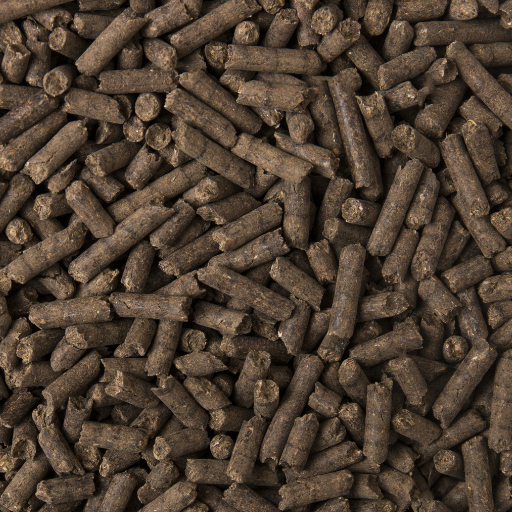
Pellets are advantageous compared to other forms of manure, such as raw, composted, or liquid. First, pellets have more concentrated nutrients per unit weight than other types of fertilizer. The sterilization process reduces their smell and risk of pathogens being transmitted through them while making them more stable. Moreover, their size and lack of volume make them easier to handle, store and apply. They also reduce waste volumes, resulting in lower transportation costs, making it convenient for large-scale farming activities. In addition, slow release of nutrients from the pellets can build up soil health and yields over time.
Benefits derived from Fertilizer Pelletizing
Pelleting fertilizer such as chicken dung adds its value through some technical benefits. Firstly, pelletization increases the density, thereby reducing the cost of transporting manure. For example, pelleted manures usually have bulk densities ranging between 500-700 kg/m3, whereas solid manures have a typical range between 200-300 kg/m3. This reduction in density saves a lot on storage and logistics.
Secondly, pelletized manure has relatively uniform nutrient contents with an average N (nitrogen) concentration of around 4–5%, P (phosphorus) content of approximately 3–4%, and K (potassium) ranging from 2 to 3%. This levelness ensures better nutrient management for crops hence improved overall agricultural efficiency.
Further still, sterilization in making pellets kills any pathogenic microbes present in them, including weed seeds, thus reducing the risk associated with disease infection or introducing invasive species into the ecosystem. Raw or composted manures do not last long because they are highly unstable since their moisture content is at room temperature. This makes handling difficult, unlike with pellets that contain about 10-12% moisture content, thus enabling longer shelf life.
In total, however, this is a technically superior product for organic manuring as it reduces nutrient loss, enhances transport and storage logistics, and minimizes the spread of diseases during application.
Easy Application and Application Rates
Pelletized chicken manure is much easier to apply than raw chicken manure because it can be efficiently spread with traditional spreading equipment due to its even size and shape. This easy method ensures that nutrients are uniformly distributed throughout the field, optimizing crop uptake of nutrients. Typical rates of application for pelletized chicken manure range from 1 to 2 tons per acre, varying according to soil type and crop nutrient needs. These quantities are justifiable since they supply enough NPK (nitrogen, phosphorus, potassium) in a balanced manner that supports plant growth. They also prevent over-application of fertilizers, hence minimizing adverse environmental effects, thus promoting sustainable agriculture.
Reduced Risk of Pathogens in Treated Manure
Processed forms of manure, such as pelletized chicken dung, go through thermal treatments, significantly decreasing the number of pathogenic microorganisms in them. High temperatures reached during this process can kill common pathogens like E.coli and Salmonella, among others that are usually found in feces. Moreover, controlled drying reduces moisture content, leading to an environment that is not conducive for microbial growth. Consequently, the final product is substantially safer for use on farms reducing anxiety about infection transmission between plants and humans. The removal of these organisms improves both safety in crop production processes while at the same time fitting well within stringent agricultural health regulations.
How to Use Organic Chicken Manure Fertilizer Pellets in Your Garden?
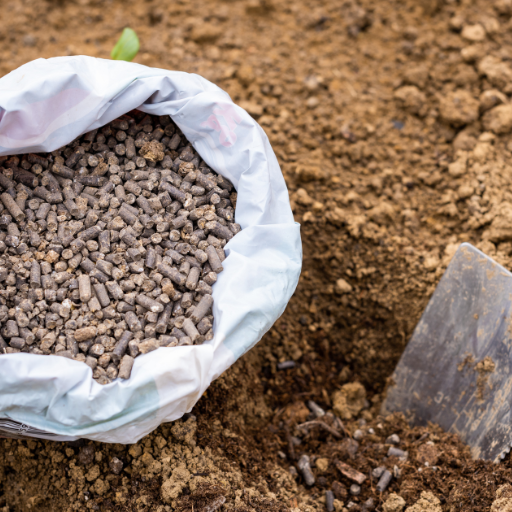
First, you must determine the nutrient needs of your plants and soil, before using chicken manure fertilizer pellets in your garden. The pellets can generally be given at rates between 1 and 2 pounds per 100 square feet of garden area. Begin by spreading the pellets evenly on top of the soil. Distribution-wise, after that one should rake or hoe them into the top six inches of soil for best nutrient mixtures. Properly add water after incorporating them into the garden must that will break down and release nutrients in the soil. You should put your pellet during early growing season or before planting to give enough time for assimilation into a ground surface. You may have to repeat this application based on plant growth requirements (4-6 weeks).
Chicken Manure Pellets Application Rate
The application rate for chicken manure pellets varied depending on specific nutrient requirements, the type of plants, and the nature of the soil where it is being used. As a general rule of thumb, apply at a rate of 20 lbs/1000 ft^2 . When intensive feeding like vegetable gardens are involved it should rather be increased up to 40 lbs/1000ft^2 . To customize this rate according to your garden’s specific needs, always remember to do a soil test first, as it may cost less than buying soils unnecessarily besides being environmentally friendly. Another advantage is when these manure pellets are mixed with watered earth.
Integrating Pellets into Your Organic Gardening Routine
For maximum benefit from applying chicken manure pellets in an organic gardening program requires a systematic approach towards it so that all crops get supplies they require most efficiently. First, perform a comprehensive soil analysis to establish baseline nutrient levels in your farmland so that accurate customization amounts can be done for the pelletization exercise (Jennings). Apply these pelleted products at about 20-40 pounds per 1000 square feet depending on the identified needs. At this point, these should be worked 6 inches deep into the soil and should be mixed in the soil uniformly. After use, to ensure that the nutrient content is released and taken by plants with ease it is vital to water immediately after application and during crop growing periods. It is necessary also at starting of growing season or some weeks prior to planting so that nutrients can have enough time for integrating into a ground surface. Reapplication every 4 to 6 weeks during the growing season may be necessary, depending on ongoing soil nutrient tests and plant requirements.
Best Practices for Applying Fertilizer Pellets
Several measures must be observed while applying fertilizer pellets to enhance nutritive content uptake and promote crop health. First and foremost, it is important that the pellets are evenly spread throughout a particular area. A broadcast spreader should be used for uniform coverage on lawns. When dealing with garden beds, manual spreading of such pellets uniformly or using hand spreaders instead could assist.
When considering the timing of application, early morning or late afternoon hours would be most appropriate because they will minimize evaporation and help more absorption take place (Terrance). Apply them before starting a gardening year—usually in early spring—allowing them to mix with the earth’s layers fully (Steen). Soil testing every four to six weeks during growth seasons will indicate whether additional pellet applications are needed.
To have effective nutrient management, the recommended application rates must be followed. Normally, an application rate of 20 pounds/1000 sq. ft. can be applied for ordinary lawns. A higher rate, like 40 pounds per 1000 square feet, may be useful for vegetable gardens and other plants that require more nutrients. Working into the uppermost six inches of soil will greatly enhance plant nutrient availability.
Another important thing to remember is that constant watering should follow once the initial application has been completed. This helps dissolve the pellets, thereby making them release nutrients more efficiently into the soil. Constant monitoring of plant health and soil nutrient levels can guide any necessary adjustments in the application process. Regular maintenance and adherence to these best practices will, therefore, facilitate optimal plant growth and soil health.
What Nutrients Do Organic Chicken Manure Pellets Provide?
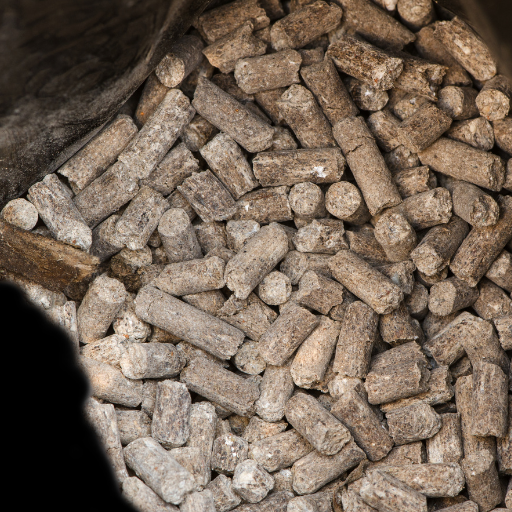
The rich nutrient supply in organic chicken manure pellets encourages plant growth. Most importantly, chickens aid by providing them in considerable quantities in a balanced ratio of nitrogen (N), phosphorous (P), and potassium (K), which are essential for the growth of many plants. Nitrogen stimulates leafy green growth, phosphorus is critical for root development and flowering, and potassium strengthens overall health of the plant as well as improving its resistance to diseases. Calcium is one of the secondary nutrients provided by chicken manure pellets that help in cell wall development. At the same time, trace elements such as magnesium and sulfur are crucial for various biochemical processes within plants. This ensures that they improve soil fertility and structure because these pellets slowly release their nutrients.
Understanding NPK Ratio (4-3-2)
The NPK ratio 4-3-2 refers to the amount of nitrogen (N), phosphorous (P), and potassium (K) contained within organic chicken manure pellets. In particular, 4% nitrogen supports robust vegetative growth and chlorophyll production necessary for photosynthesis. Phosphorus at 3% enhances root development, flower formation/fruit production and energy transfer through adenosine triphosphate (ATP). Potassium at 2% regulates water uptake by the plant, activates various enzymes involved in metabolism like protein synthesis and starch formation.
Benefits from this specific NPK ratio accrue several times over time. On the other hand, nitrogen is immediately available because it contains relatively more when compared to P and K, which ensures other primary functions are not compromised, hence ensuring proper overall plant development. These ratios can be technically justified using common garden crops’ nutritional requirements, whose nutrition should typically come from balanced sources N:P:K to avoid deficiency symptoms or imbalances.
Calcareous materials such as calcium are found mainly in these types of fertilizers. They enhance cell wall integrity and aid metabolic functions and chlorophyll production in plants. These are released gradually to the plants, thereby avoiding their loss through leaching into the soil, thus ensuring soil fertility is sustainable over a longer time.
Key Nutrients: Nitrogen, Potassium, and Magnesium
Nitrogen (N), Potassium (K), and Magnesium (Mg) are important plant nutrients that play vital roles in the growth and productivity of plants. Nitrogen is necessary for vegetative growth as it is required for amino acid synthesis, protein formation, and enzyme activity. Chlorophyll, which contains magnesium elements, forms light-sensitive molecules during photosynthesis; it traps light energy that’s converted into carbohydrates by chemical reactions within organisms. It facilitates water uptake by regulating enzymes responsible for catalyzing different processes including protein synthesis and starch formation within the organism. In line with this, it enhances resistance to pests and diseases and promotes general plant vigor while potassium exists in various biological processes. Furthermore, magnesium is an essential constituent of chlorophyll molecules since it acts as a cofactor to chlorophyll synthesis in plants as well as participating in many other vital enzymatic reactions such as stabilizing ribosomal structures, which help in metabolic process coordination, including protein biosynthesis at the cellular level. The availability of these key nutrients on an equitable basis has ensured their optimum health status enabling them have higher yields.
Soil Aeration and Structure Impact
Incorporating organic pellets has a great influence on the soil structure and aeration. These pellets encourage the development of soil aggregates which are clusters of soils particles sticking together. Such aggregates improve soil porosity, thus improving air movement through and water dynamics within profiles. For plants’ roots to respire well, beneficial microorganisms must have oxygen through aeration in the rhizosphere. Also, these pellets contain organic matter that increases the water-holding capacity of soils, reducing runoff and erosion.
Over time, the continuous addition of organic pellets leads to better soil structure and tilth, which enhance root penetration into the ground surface and allow for general plant growth.
Bulk density, total porosity, and water infiltration rate are some of the parameters through which pellet integration enhances improvement in soil structures, and they can technically be quantified. Smaller bulk densities imply lighter soils, while more porous ones have higher infiltration rates, denoting higher permeability concerning good management of water entry into them. Research has shown that soils amended with organic matter can reduce their bulk density by 20% and increase porosity by around 10-15%. Therefore, organic pellets help improve soil health.
Can Chicken Manure Pellets Be Used for Lawns and Gardens?
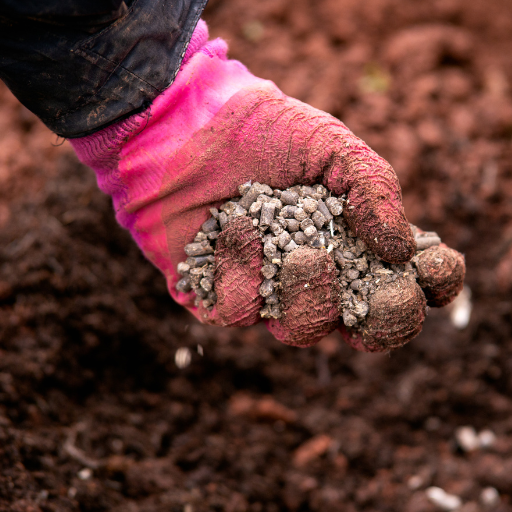
Indeed, chicken manure pellets can be used for both lawns and gardens. They are rich in organic materials and nutrients with nitrogen, phosphorous, and potassium being the most significant ones required in soil to facilitate plant growth. In terms of lawns, it is advisable to spread the chicken manure pellets evenly over the area and then heavily water them so that they will slowly disintegrate into the soil. When planting vegetables, these should be mixed with soil before or when the sides are dressed during planting season. The slow-release nature of chicken manure pellets ensures that plants receive a steady supply of nutrients throughout their life cycle, which leads to vigorous growth.Similarly, this component aids in bettering the health of your garden bed by enhancing its overall fertility along with moisture retention as well as microbial activity.
This is how you can achieve a luxurious, healthy green lawn and vibrant productive gardens.
Benefits for Lawn Health and Maintenance
Chicken manure pellets improve lawn health and maintenance in many ways. To begin with, their high concentration of nitrogen boosts grass growth, promoting greener, denser lawns. On another note, they provide other essential minerals like phosphorus and potassium, which are important for plant health, including root development. Regular application can also lead to increased soil structure through the addition of organic matter, thus enhancing air circulation within the soil while at the same time increasing its ability to hold water, which is critical for healthier roots. Furthermore, it promotes beneficial microbial activities, resulting in improved balance within ecosystems, thereby reducing reliance on chemical-based fertilizers. The slow-release feature ensures that nutrient burn, causing excessive burning of nutrients, does not occur; hence, there is continuous vigor during growing seasons.
Enhancing Soil Fertility in Vegetable Gardens
Vegetable gardens specifically benefit from chicken manure pellets due to their nutrient-filled makeup and ability to remain active over an extended period. These ingredients contain relatively high amounts of nitrogen, phosphorous, and potassium, essential for the growth and development of vegetables. Nitrogen is a significant factor in leaf production; phosphorous helps to develop strong roots and fruits, while potassium aids in plant disease resistance. Gardeners can grow better soil by mixing chicken manure pellets into it thus increasing microbial activities that help maintain moisture levels.Soil improvement through this approach leads to higher-yielding populations of healthier crops.
Using Pelleted Fertilizer for Various Garden Fertilizer Needs
Apart from vegetable gardens, pelleted fertilizers are also adaptable to different gardening situations. Chicken manure pellets are ideal for flower beds as they contain nutrients required for attractive blooms and healthy plants. High nitrogen contents result in luxurious foliage, while phosphorous and potassium relate to improved root systems, leading to increased flower numbers, respectively. Fruit set and maturation in orchards can be enhanced using granulated fertilizers because they supply the right profile of nutrients needed by fruits during their development.
Chicken manure pellets usually contain an average of approximately 4-3-2 (N-P-K) for the major nutrient ratio. Also, these pellets contain around 60-70% organic matter, thus improving the soil structure and fertility levels of your soil bed.
Concerning application rates, it is recommended that you apply about 20 pounds of chicken manure pellets per 100 square feet for vegetable gardens, 10-15 pounds per 100 square feet for flower beds and 1-2 pounds per trunk diameter inch for fruit trees. Thus, plants are well-fed without running the risk of over-fertilizing. There is a need to monitor the soil nutrient levels and adjust application rates as necessary to maintain plant health at its peak condition and productivity.
How Do Organic Chicken Manure Pellets Compare to Other Fertilizers?
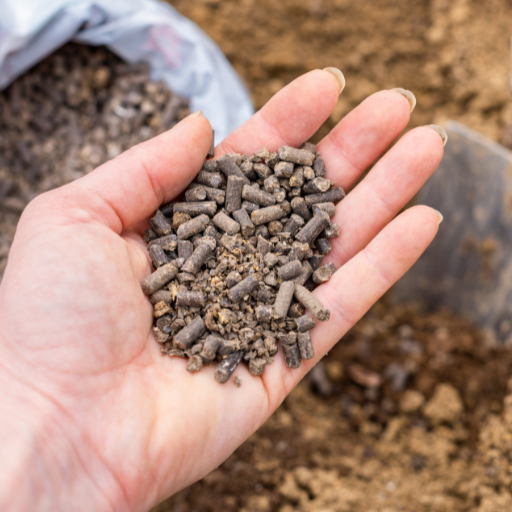
Several distinctions and limitations arise when comparing organic chicken manure pellets with other fertilizers. Organic chicken manure pellets are better regarding environmental sustainability and soil health. They release nutrients slowly, thus reducing the risk of nutrient leaching and pollution, whereas most synthetic fertilizers result in fast nutrient blowoffs that may be harmful to waterways. Besides, they also improve soil structure through high organic matter content, which leads to a good environment for soil microorganisms.
On the other hand, synthetic fertilizers provide immediate nutrition availability that can be useful for accelerated plant growth but may require more frequent application to sustain soil fertility. In contrast, though useful, composted manures and plant-based organic fertilizers usually have lesser amounts of essential ingredients compared to chicken manure, making them less efficient and requiring larger portions to achieve similar results. Each type of fertilizer has its own specific use case, while chicken manure pellets give an alternative that is balanced and eco-friendly, hence promoting long-term soil health.
Comparing Cow Manure and Horse Manure
Compared with organic chicken manure pellets, cow dung and horse dung have unique characteristics. For example, cow dung often contains less nitrogen than chicken litter; hence, it releases nutrients at a slower rate. On average, cow droppings contain about 0.5% nitrogen, 0.2% phosphorus, and 0.5% potassium, thereby calling for large amounts to be applied so as to bring about similar fertilization effects just like those brought by chicken manure pellets. Unlike urine-borne nutrients, these tend not to contribute significantly towards soil moisture because they have high water content but very low nutritional value, making them ineffective as a major fertilizer.
However, horse faeces have different compositions according to what animals eat but are generally richer in nitrogen than cow dung, containing approximately 0.7% nitrogen, 0.3% phosphorus, and 0.6% potassium. This makes horse manure a bit denser in nutrients than cow manure but less than chicken manure pellets. Consequently, both cow and horse excrements are less decomposable than chicken droppings, resulting in slow nutrient release.
Comparing Chicken Manure to Synthetic Fertilizer
When comparing organic chicken manure pellets with synthetic fertilizers such as urea or NPK, several factors should be taken into account including nutrient content, release rate, environmental impact and soil health benefits. The composition of nutrients in chicken manure pellets is approximately 1.5-3% nitrogen, 1.5-2% phosphorus, and 1-2% potassium. Such values are much lower as compared to standard synthetic fertilizers that can have specific nutrient contents above 10 % for nitrogen, phosphorus, and potassium, respectively; for example, an NPK synthetic fertilizer blend may be 10-10-10, which has therefore made it higher in terms of available nutrients upon application.
Synthetic fertilizers, on the other hand, release nutrients immediately after being applied, unlike the organic nature of chicken manure. Thus, they reduce nutrient loss through leaching while promoting continuous soil fertility.
Chicken feces save for its ability to recycle waste materials back into the ground, enriching it with important materials, thereby improving soil structure and increasing microbial activity around it. It is environmentally friendly because it contains organic matter that enhances its structure and also has microorganisms living inside. On the other hand, synthetic fertilizers may cause soils to degrade over time since they do not contain any organic matter, reducing the organic matter content and possible soil compaction, besides decreasing microbial diversity under certain circumstances.
Reference sources
- The Spruce
- Article: “Using Chicken Manure as Garden Fertilizer”
- Summary: This article discusses the advantages of using chicken manure as a garden fertilizer, highlighting its rich nutrient profile and differences between fresh and dried manure, thereby supporting its feasibility as an organic fertilizer.
- Southland Organics
- Article: “Chicken Manure Fertilizer”
- Summary: The piece elaborates on the process of creating chicken manure pellets, including composting and heating to disinfect, underscoring their effectiveness as a compact and nutrient-rich organic fertilizer option.
- University of Nevada, Reno Extension
- Article: “Using Chicken Manure Safely in Home Gardens”
- Summary: This publication provides insights into the nutrient content of chicken manure, emphasizing its high levels of nitrogen, potassium, phosphorus, and calcium, which make it a valuable and effective organic fertilizer for home gardens.
Frequently Asked Questions (FAQs)
Q: What are Organic Chicken Manure Pellets?
A: Organic Chicken Manure Pellets are a type of nutrient-rich fertilizer made from composted chicken manure. They are pelletized for easy application and approved for use in organic farming.
Q: How do Organic Chicken Manure Pellets improve soil?
A: Organic Chicken Manure Pellets improve soil by providing essential nutrients that enhance soil life. The organic ingredients in the pellets help increase soil fertility and promote healthy plant growth.
Q: Can I use these pellets for all types of plants?
A: Yes, these pellets are an all-purpose organic fertilizer suitable for various plants. They are beneficial for vegetables, flowers, and even lawns, making them ideal for diverse gardening needs.
Q: Is pelletized chicken manure better than fresh manure?
A: Yes, pelletized chicken manure is more convenient and less odorous than fresh manure. The composting process reduces pathogens and odors, making it safer and more user-friendly.
Q: How often should I apply the pellets to my garden?
A: It depends on the plants and soil conditions, but generally, applying the pellets once or twice a season is sufficient. Because it is a slow-release fertilizer, it provides a steady supply of nutrients over time.
Q: Are Organic Chicken Manure Pellets safe for organic gardening?
A: Absolutely. These pellets are certified organic and approved for use in organic production. They are made from 100 percent organic ingredients and adhere to standards for organic farming practices.
Q: Can I make compost tea with these pellets?
A: Yes, you can make compost tea with Organic Chicken Manure Pellets. Simply steep the pellets in water, and the resulting liquid will be a nutrient-rich fertilizer for your plants.
Q: How do these pellets compare to steer manure?
A: While both are valuable organic fertilizers, chicken manure generally has higher nitrogen content than steer manure. Chicken manure is also pelletized, making it easier to handle and apply.






